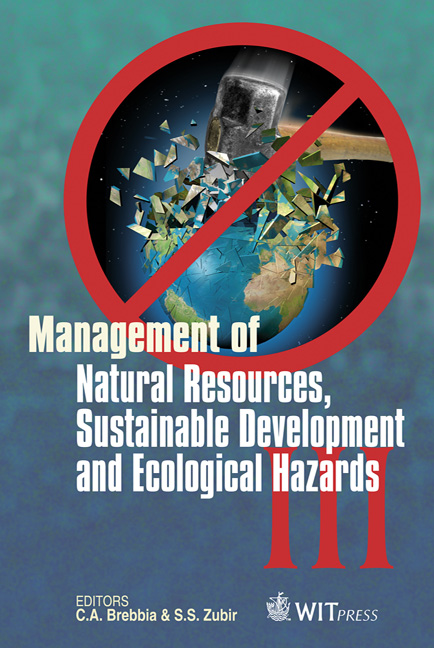Validity Of The Application Of Open Dug Well Sanitary Survey Methodology In The Development Of A Water Safety Plan In The Maldives Islands
Price
Free (open access)
Transaction
Volume
148
Pages
12
Page Range
369 - 380
Published
2011
Size
855 kb
Paper DOI
10.2495/RAV110341
Copyright
WIT Press
Author(s)
S. Barthiban & B. J. Lloyd
Abstract
As practised in the remote Maldives islands, groundwater exploitation using open dug wells with on-site sanitation systems causes major microbial contamination of well water. Surveys show that 75% of the Maldives population currently rely on rainwater tanks for drinking water. Global climatic change causes prolonged drought periods and extensive rainfall events causing flooding. In addition to rainwater storage tanks, the very limited land area makes the utilisation of the natural underground reservoir an essential water source for the remote Maldives islands. Therefore, it becomes vital to protect the groundwater quality in these islands. Using methods published by World Health Organisation (WHO) for combined hazard identification and faecal contamination, a surveillance study of open dug wells was carried out in six selected islands of the Maldives. The aims were to assess the current risks and sustainability of the open dug wells in the study areas with respect to sanitation related health issues. The field study involved systematically collecting data about sanitary hazards in the neighbourhood of wells and well water quality, including thermo-tolerant faecal coliform counts. The results showed that the great majority (83%) of wells were, as expected, faecally contaminated. However, the expected benefit of using combined sanitary survey and faecal contamination level assessment to prioritize specific remedial actions to improve the microbial quality of well water was not realized in this study, in contrast to earlier published studies. The principal reasons for this methodological failure are: 1. the geological setting of the Maldives is extremely vulnerable overall, particularly since there is effectively no soil layer
Keywords
groundwater, on-site sanitation, sanitary survey, well and the well head area, faecal coliforms





